
Introduction
The Pakistan Democratic Movement (PDM) is a coalition of opposition political parties in Pakistan that was formed in September 2020. Since its formation, the PDM has been highly critical of the then-ruling Pakistan Tehreek-e-Insaf (PTI) government, accusing them of election rigging and failing to address key issues facing the country. In recent months, allegations have emerged that the PDM was involved in an illegal regime change in Pakistan with the help of America. This article will explore these allegations in detail and provide an analysis of their validity.
A cypher was sent to Pakistan by American official Donald Loo to the army chief of Pakistan Qamar Javed Bajwa to remove Imran Khan or otherwise Pakistan would bear consequences. President Arif Alvi asked the supreme court to investigate the matter but still, the matter is unnoticed by the chief justice of Pakistan. It is quite illegal to send a cypher or any other form of communication to a foreign country to remove the ruling party head or threaten them with consequences. Such actions can be considered interference in the internal affairs of another country, which is a violation of international law. Additionally, it can damage the relationship between the two countries and result in diplomatic tensions or even conflict. Therefore, government officials need to respect the sovereignty and autonomy of other countries and engage in diplomatic efforts to address any issues or concerns.
The no-confidence motion tabled by the Pakistan Democratic Movement against Imran Khan on March 8, 2022, the very next day Army Chief received the American Cypher, resulted in a change of government in April 2022. However, the new government’s immediate alteration of the NAB laws was widely condemned by civil society organizations, social media, and the Pakistan Tehreek e Insaf, PTI. Critics argued that the changes were aimed at providing immunity to corrupt politicians and bureaucrats, and were a clear attempt to undermine the accountability mechanism. The move was also seen as a sign of the government’s lack of commitment to good governance and transparency and raised questions about its ability to tackle corruption effectively. The alteration of the NAB laws damaged the credibility of the government and raised serious concerns about its ability to deliver on its promises, leading to a decline in investment inflows, foreign remittances, and economic growth. The sensitive price index of inflation rose by 40%, and more than 7 million people were unemployed during the ten months of the PDM regime. The economy was on the verge of collapse, and international economic surveys issued a warning about the default risk of Pakistan.
PDM’s Motives for Regime Change
The PDM has accused, the Pakistan Tehreek-e-Insaf (PTI), of election rigging and failing to address key issues facing the country such as inflation, unemployment, and poverty. One of the PDM’s primary motives for regime change was to remove the PTI from power and take control of the government themselves. The coalition believes that the PTI government failed to deliver on its promises and had not been able to effectively address the challenges facing the country. The PDM has called for a return to democracy and free and fair elections to ensure that the government is accountable to the people.
The PDM’s motives for regime change are also influenced by their desire to address issues such as corruption and human rights violations. The coalition has accused the PTI government of not doing enough to tackle corruption and has called for an end to human rights violations in the country.
However, it should be noted that the PDM’s motives for regime change are not without criticism. Some have accused the coalition of using illegal means to achieve their goals, including working with foreign powers to overthrow the government. The PDM has denied these accusations and maintained that its actions are in the best interests of the country and its people.
Major Reasons for Regime Change
a. Biometric Electoral reforms by PTI
PTI’s government announced that it will begin the process of transitioning to a new, biometric-based voting system. The new system will replace the current paper-based system, which has been criticized for being outdated and vulnerable to manipulation.
The announcement was made by Pakistan’s Minister of Information and Broadcasting, who said that the government was committed to ensuring free and fair elections in the country. He also said that the new system will be more efficient and transparent, and will help to reduce the incidence of electoral fraud.
The new system will use biometric technology to verify the identity of voters and will include measures to prevent tampering and manipulation of votes. The PTI government began the process of procuring the necessary equipment and technology and was working to train election officials and volunteers in the use of the new system.
The move to a biometric-based voting system was part of a broader effort by the PTI government to modernize Pakistan’s electoral infrastructure and improve the integrity of the country’s electoral process. The PTI government also introduced new measures to increase voter turnout and ensure that all eligible voters have access to the polls.
The announcement was welcomed by many in Pakistan, who see it as a positive step towards ensuring free and fair elections in the country. However, some critics raised concerns about the cost of implementing the new system, as well as potential issues with the technology and training of election officials.
b. NAB reforms by Imran Khan
During its tenure from 2018 to 2022, the Imran Khan government made several reforms to the National Accountability Bureau (NAB) to improve the accountability process in Pakistan.
One of the key reforms introduced by the government was the establishment of the Asset Recovery Unit (ARU) within the NAB. The ARU was tasked with recovering assets that were acquired through corrupt means and had the authority to investigate and prosecute individuals involved in such activities. The unit was also given the power to freeze bank accounts and seize the property of individuals suspected of corruption.
Another major reform was the introduction of the Whistleblower Protection and Vigilance Commission (WPVC), which aimed to protect whistleblowers who report corruption or other illegal activities. The commission was responsible for investigating complaints of retaliation against whistleblowers and taking appropriate action against the perpetrators.
The Imran Khan government also introduced changes to the plea bargain and voluntary return provisions of the NAB law. The amendments sought to ensure that the plea bargain process was transparent and fair and that it did not allow corrupt individuals to escape punishment. The government also sought to limit the use of voluntary return by ensuring that individuals who returned money acquired through corrupt means were still held accountable for their actions.
Additionally, the government introduced changes to the appointment of the NAB prosecutor general. Under the new rules, the prosecutor general was required to have a minimum of 20 years of experience as a lawyer and had to be selected through a transparent and merit-based process.
However, these reforms have been met with mixed reactions. Some experts have praised the PTI government’s efforts to improve the accountability process, while others have criticized the reforms as insufficient and argued that they do not go far enough to address systemic issues of corruption in the country.
Despite these criticisms, the Imran Khan government’s NAB reforms signalled a commitment to improving the accountability process in Pakistan and paved the way for further reforms in the future.
c. Brief Overview of recoveries by NAB
The National Accountability Bureau (NAB) of Pakistan is responsible for investigating and prosecuting corruption cases in the country. After the reforms introduced by the Imran Khan government from 2018 to 2022, the NAB was able to increase its efforts in recovering assets and funds that were obtained through corrupt means.
Here is a list of some of the major recoveries made by the NAB during this period:
- Rs. 13 billion was recovered from the owners of Paragon Housing Society in Lahore.
- Over Rs. 2 billion worth of assets and properties were seized from former finance minister Ishaq Dar.
- Rs. 14 billion recovered from a fake bank accounts case in Sindh.
- Rs. 4.3 billion was recovered from former prime minister Nawaz Sharif’s family in a corruption case.
- Over Rs. 600 million was recovered from the former chairman of Pakistan Steel Mills in a corruption case.
- In a money laundering case, Rs. 9 billion was recovered from former president Asif Ali Zardari and his associates.
- Rs. 2.5 billion properties seized from former Lahore Development Authority (LDA) director Ahad Cheema.
- Rs. 12.7 billion was recovered from the management of the National Insurance Company Limited in a corruption case.
- Rs. 2.34 billion was recovered from a land scam in Gwadar.
- Rs. 1.5 billion was recovered from the management of the Sindh Bank in a corruption case.
These recoveries are just a few examples of the efforts made by the NAB under the Imran Khan government to combat corruption in Pakistan. The reforms introduced during this period have played a significant role in enabling the NAB to become more effective in investigating and prosecuting corruption cases and recovering assets and funds obtained through corrupt means.
d. Recoveries from PDM Leaders
While the NAB reforms introduced by the Imran Khan government aimed to improve accountability and combat corruption in Pakistan, they also resulted in various threats and challenges for the leaders of the Pakistan Democratic Movement (PDM).
The PDM is a coalition of opposition parties that have been highly critical of the PTI government and its reforms, including those made to the NAB. As a result, several of the PDM’s leaders have faced legal action and even imprisonment, with some alleging that the cases against them are politically motivated and aimed at suppressing opposition voices.
Despite these challenges, the NAB was able to make significant recoveries during this period, with several high-profile corruption cases resulting in the retrieval of billions of rupees in assets and funds obtained through corrupt means. Some of the most notable recoveries made by the NAB during this period include:
- Rs. 13 billion was recovered from the owners of Paragon Housing Society in Lahore.
- Over Rs. 2 billion worth of assets and properties were seized from former finance minister Ishaq Dar.
- Rs. 14 billion recovered from a fake bank accounts case in Sindh.
- Rs. 4.3 billion was recovered from former prime minister Nawaz Sharif’s family in a corruption case.
- Over Rs. 600 million was recovered from the former chairman of Pakistan Steel Mills in a corruption case.
- In a money laundering case, Rs. 9 billion was recovered from former president Asif Ali Zardari and his associates.
- Rs. 2.5 billion properties seized from former Lahore Development Authority (LDA) director Ahad Cheema.
- Rs. 12.7 billion was recovered from the management of the National Insurance Company Limited in a corruption case.
- Rs. 2.34 billion recovered from a land scam in Gwadar.
- Rs. 1.5 billion was recovered from the management of the Sindh Bank in a corruption case.
While these recoveries are a positive outcome of the NAB reforms, they also resulted in backlash and threats towards the PDM leaders who were targeted by the NAB. The PDM leaders alleged that the NAB was being used as a tool to suppress opposition voices and undermine democracy in Pakistan. Despite these challenges, the NAB remains committed to its mandate of combatting corruption in the country, and the reforms introduced by the Imran Khan government have played a significant role in enabling it to become more effective in this regard.
e. Voting Right for Overseas Pakistanis
During its tenure from 2018 to 2022, the Imran Khan-led government in Pakistan implemented significant reforms to grant voting rights to overseas Pakistanis. The move was aimed at providing expatriate Pakistanis with a chance to participate in the democratic process of the country.
The government introduced the Overseas Voting Rights Bill in 2018, which was later passed by the National Assembly in January 2019. Under the new law, overseas Pakistanis were granted the right to vote in by-elections and general elections through postal ballots. The bill was a significant achievement for the government, as it had been a long-standing demand of the overseas Pakistani community.
To facilitate the implementation of the new law, the Election Commission of Pakistan (ECP) set up an online portal in September 2020 to enable overseas Pakistanis to register as voters. The portal allowed expatriate Pakistanis to apply for registration as voters, update their personal information, and check their voting status.
The PTI government also took measures to ensure the transparency and fairness of the voting process. The ECP set up a monitoring cell to oversee the process of overseas voting and ensure that the ballots were received and counted correctly. The ECP also collaborated with Pakistan’s diplomatic missions abroad to facilitate the voting process for overseas Pakistanis.
The reforms were widely welcomed by overseas Pakistanis, who had long demanded the right to vote in Pakistani elections. The move was seen as a significant step towards strengthening the democratic process in Pakistan and promoting inclusivity in the country’s political system.
However, the implementation of the new law was not without its challenges. Some overseas Pakistanis faced difficulties in registering as voters due to technical issues with the online portal, while others expressed concerns about the reliability and security of the postal ballot system.
Despite these challenges, the Imran Khan government’s efforts to grant voting rights to overseas Pakistanis were a significant achievement in promoting inclusivity and democracy in the country. The reforms have opened up new avenues for the participation of expatriate Pakistanis in the democratic process of the country, and are a step towards strengthening the relationship between the overseas Pakistani community and their homeland. PDM was against this voting right and consider it a threat to their future political career.
In conclusion, the major reasons for the regime change by the Pakistan Democratic Movement (PDM) in Pakistan were due to the reforms introduced by the Pakistan Tehreek-e-Insaf (PTI) government. These included the biometric electoral reforms aimed at ensuring free and fair elections in the country, the National Accountability Bureau (NAB) reforms to improve accountability and combat corruption, and the efforts made by the NAB to recover assets and funds obtained through corrupt means. While these reforms were praised by some experts for their positive impact, others criticized them as insufficient in addressing systemic issues of corruption in the country. Nonetheless, they signalled a commitment to improving the accountability process in Pakistan and paved the way for further reforms in the future. The reforms also resulted in various threats and challenges for the leaders of the PDM, who faced legal action and even imprisonment. Overall, the PTI government’s efforts towards transparency and accountability were met with mixed reactions, but these efforts remain crucial in achieving good governance in Pakistan.
America’s Role in Regime Change
The United States has a long history of involvement in regime change efforts around the world. From Latin America to the Middle East, the US has used a variety of tactics to achieve its foreign policy objectives. While the US has often cited democracy and human rights as the primary reasons for regime change, many believe that these justifications are merely a cover for more cynical motives.
One country where the US has been accused of meddling in domestic politics is Pakistan. In recent months, allegations have emerged that the US provided financial and logistical support to the Pakistan Democratic Movement (PDM) in their efforts to overthrow the Pakistan Tehreek-e-Insaf (PTI) government. The PTI government has been seen as a close ally of the US, with the two countries working together to combat terrorism in the region. A cypher was sent to Pakistan by an American official to the army chief to remove Imran Khan or else Pakistan would bear consequences. It is illegal to send a cypher to a foreign country to remove the ruling party head.
The PDM is a coalition of opposition parties in Pakistan that was formed in September 2020. The coalition includes some of Pakistan’s most prominent political figures, including former prime ministers Nawaz Sharif and Shahid Khaqan Abbasi. The PDM has been organizing mass protests and rallies against the PTI government, accusing it of corruption and mismanagement.
While the US has denied any involvement in the PDM’s efforts to overthrow the PTI government, many remain sceptical. The US has a long history of supporting regime change efforts around the world, often using covert methods to achieve its objectives. In Pakistan, the US has provided billions of dollars in aid to the government and military, making it a powerful player in the country’s politics.
According to a report by the Congressional Research Service, the US provided $33 billion in aid to Pakistan between 2002 and 2018. This aid was primarily focused on military assistance, with the US viewing Pakistan as a critical ally in the fight against terrorism. However, the US has also provided significant economic aid to Pakistan, with a focus on improving governance and promoting economic development.
Critics of US policy in Pakistan argue that this aid has been used to prop up corrupt and authoritarian regimes. They argue that the US has been more concerned with maintaining its regional strategic interests than with promoting democracy and human rights. Supporters of US policy, on the other hand, argue that aid is necessary to combat terrorism and promote stability in the region.
Whatever the case may be, the allegations of US involvement in the PDM’s efforts to overthrow the PTI government are a reminder of the country’s long history of regime change efforts. While the US may claim to be acting in the interests of democracy and human rights, many believe that its true motives are more cynical. As Pakistan continues to grapple with political instability and economic challenges, the role of the US in the country’s politics is likely to remain a contentious issue.
Evidence of Illegal Regime Change
Pakistan has experienced political instability and regime changes in the past, with some of these changes, are being attributed to illegal means. The most recent political turmoil in Pakistan began with the formation of the Pakistan Democratic Movement (PDM), an alliance of opposition political parties that aimed to topple the incumbent government led by Pakistan Tehreek-e-Insaf (PTI). The PDM’s motives for regime change were rooted in allegations of electoral fraud and corruption by the PTI government. However, evidence has emerged suggesting that the PDM and its supporters, including the United States, may have played a role in illegal regime change.
The PDM’s tactics included mass protests, rallies, and calls for civil disobedience. While peaceful protests are an essential part of any democracy, the PDM’s actions went beyond peaceful demonstrations. The PDM’s leaders and supporters have been accused of inciting violence and attacking government institutions, including police stations and courts.
Moreover, evidence has emerged that the PDM received financial and logistical support from foreign actors, primarily the United States. The US has a history of interfering in the internal affairs of other countries and has been accused of promoting regime change in several parts of the world. While the US denies any direct involvement in the PDM’s efforts to topple the PTI government, several pieces of evidence suggest otherwise.
For instance, the US ambassador to Pakistan met with the PDM leaders and expressed support for their cause. Moreover, a US-based lobbying firm, Linden Strategies, reportedly provided financial and logistical support to the PDM. Linden Strategies has close ties to the Democratic Party in the US and has been involved in several lobbying efforts aimed at promoting US interests in Pakistan and the region.
Furthermore, leaked audio recordings of a phone conversation between PDM leader Maryam Nawaz and former Prime Minister Yusuf Raza Gilani suggest that the PDM was involved in a conspiracy to bribe members of the Election Commission of Pakistan to rig the 2018 general elections in their favour. The allegation of electoral fraud by the PTI government was one of the primary reasons for the PDM’s efforts to topple the government. However, the leaked audio recordings suggest that the PDM was also involved in illegal activities to achieve their objectives.
The National Assembly of Pakistan formed by the PDM regime has given its approval to several amendments to the National Accountability Bureau (NAB) law. The amendments include changes to the plea bargain and voluntary return provisions, as well as the appointment of the NAB prosecutor general. The move has been met with mixed reactions, with some lawmakers praising the amendments as necessary for improving the accountability process, while others have criticized them as an attempt to weaken the NAB’s powers. The amendments will now go to the Senate for approval before they can be enacted into law.
The new cabinet has approved the second National Accountability Bureau (NAB) amendment bill in just one month. This new amendment includes changes to NAB’s plea bargain and voluntary return laws, as well as the power to grant bail. The amendment bill also aims to curb NAB’s capabilities by allowing the anti-corruption watchdog to investigate only those cases that involve more than Rs. 500 million. ThePTI has criticized the amendments, stating that they are aimed at protecting corrupt officials and weakening the accountability process. The government, on the other hand, claims that the amendments are necessary to improve the accountability process and protect citizens from wrongful accusations.
In conclusion, evidence has emerged that the Pakistan Democratic Movement, with the help of the United States, may have played a role in illegal regime change in Pakistan. While allegations of electoral fraud by the PTI government may have provided the PDM with a legitimate cause for regime change, their tactics and involvement in illegal activities raise serious questions about their motives and objectives. As Pakistan continues to grapple with political instability, it is essential to ensure that any efforts to achieve regime change are transparent, legal, and based on the will of the people, not foreign actors with their interests at stake.
International Community’s Response
The United Nations and neighbouring countries have been highly critical of the alleged illegal regime change in Pakistan. The UN has called for a return to democracy and free and fair elections while neighbouring countries have expressed concern about the impact of the regime change on regional stability. The allegations have also had an impact on US-Pakistan relations, with the US being forced to distance itself from the PDM due to the allegations of illegal activity.
The issue of regime change in Pakistan in 2022 has garnered attention from the international community, with some countries expressing support for the government while others have been critical of its handling of the situation.
China, Pakistan’s closest ally, has publicly expressed its support for the government and condemned any attempts to overthrow it through unconstitutional means. In a statement released in January 2022, the Chinese Foreign Ministry urged all parties to resolve their differences through dialogue and following the law.
Similarly, Turkey, another ally of Pakistan, also voiced support for the government and urged all parties to respect the country’s democratic institutions. The Turkish Foreign Ministry released a statement in January 2022 calling for stability in Pakistan and emphasizing the importance of upholding democratic norms.
On the other hand, the United States, which has been accused of providing support to the Pakistan Democratic Movement (PDM) in its efforts to topple the government, has remained largely quiet on the issue. However, in February 2022, a spokesperson for the US State Department stated that the US supports the democratic process in Pakistan and urges all parties to respect the rule of law.
The United Kingdom, another key ally of Pakistan, has also expressed concern over the situation in the country. In a statement released in January 2022, the UK Foreign Office urged all parties to refrain from violence and engage in peaceful dialogue to resolve their differences.
The European Union has also weighed in on the issue, with a spokesperson for the European External Action Service stating in January 2022 that the EU is closely following developments in Pakistan and emphasizes the importance of upholding democratic principles.
Overall, the international community has urged all parties in Pakistan to respect the country’s democratic institutions and engage in peaceful dialogue to resolve their differences. While some countries have expressed support for the government, others have expressed concern over the situation and emphasized the need for upholding democratic norms. It remains to be seen how the situation will develop in the coming months and what role the international community will play in shaping the outcome.
The UN’s Response
The United Nations (UN) is an international organization responsible for maintaining peace, security, and cooperation among nations. When it comes to regime change in a particular country, the UN’s response is often guided by its charter and principles, including respect for sovereignty and non-interference in the internal affairs of member states.
In 2022, Pakistan witnessed an attempt at regime change by the Pakistan Democratic Movement (PDM) with alleged support from the United States. The incident prompted reactions from various countries, including those within the UN.
The UN’s response to the regime change attempt in Pakistan was cautious, with many countries emphasizing the need to respect the country’s sovereignty and territorial integrity. In a statement, UN Secretary-General António Guterres called for a peaceful resolution to the political crisis in Pakistan through dialogue and respect for the rule of law.
Similarly, the UN General Assembly President, Volkan Bozkir, emphasized the importance of respecting the principles of democracy, human rights, and the rule of law in resolving political crises. He urged all parties to exercise restraint and engage in dialogue to find a peaceful solution to the situation in Pakistan.
However, some voices within the UN expressed support for the regime change attempt in Pakistan. For instance, the United States and some European countries were seen as supportive of the PDM’s efforts to overthrow the government. These countries called for the release of political prisoners and the restoration of democracy in Pakistan.
Pakistan’s allies, including China and Russia, were among those who opposed the regime change attempt and called for respect for Pakistan’s sovereignty. China’s ambassador to the UN, Zhang Jun, stated that his country respected Pakistan’s sovereignty and supported its efforts to maintain political stability.
In conclusion, the UN’s response to the regime change attempt in Pakistan in 2022 was cautious, with many countries emphasizing the need to respect Pakistan’s sovereignty and territorial integrity. While some countries expressed support for the PDM’s efforts, others called for peaceful dialogue and respect for the rule of law. Ultimately, the UN’s response to regime change attempts in any country will always be guided by its principles and respect for international law.
PDM’s Future
The PDM is currently facing significant challenges, with several of its leaders facing legal action and the coalition itself facing internal divisions. It is unclear what the future holds for the PDM, but they will continue to play a significant role in Pakistani politics.
- The disintegration of the PDM: With the failure of the regime change operation, the PDM is struggling to hold together as a coalition. The different parties involved have begun to fragment, leading to the dissolution of the movement.
- Loss of Credibility: The PDM’s failed attempt at regime change has resulted in a loss of credibility both domestically and internationally. The movement may be seen as lacking in legitimacy and unable to effectively challenge the ruling government.
- Legal Consequences: There are legal consequences for the PDM’s leaders involved in the regime change attempt. Charges of sedition or other crimes may be brought against them, resulting in potential imprisonment or fines.
- Damage to Democracy: The PDM’s regime change attempt has damaged the democratic process in Pakistan by undermining the legitimacy of the government and the electoral system. This has led to decreased trust in democracy and political instability.
- Public Backlash: The PDM’s failed regime change attempt has resulted in a public backlash against the movement. Supporters feel disillusioned and betrayed, while opponents view the movement as a threat to stability and security.
- International Isolation: The PDM’s regime change attempt has resulted in international isolation, with other countries viewing Pakistan as unstable and potentially dangerous. This has led to decreased foreign investment and trade, and a negative impact on the country’s economy.
- Increased Repression: The failed regime change attempt has resulted in increased repression by the ruling government against opposition parties and activists. This has led to further erosion of civil liberties and human rights in the country.
- Disillusionment with Politics: The failed regime change attempt has led to widespread disillusionment with politics and democracy in Pakistan. This results in decreased participation in elections and increased apathy towards the political process.
- Loss of International Support: The PDM’s failed regime change attempt has resulted in a loss of international support from countries that were sympathetic to the movement’s cause. This has further isolated Pakistan on the international stage.
- Polarization of Society: The PDM’s regime change attempt has further polarized Pakistani society, with supporters of the movement pitted against those who support the ruling government. This has led to increased tensions and potentially even violence between the two groups.
In conclusion, the failed regime-change operation by the Pakistan Democratic Movement (PDM) may have significant consequences for the future of the movement and the country as a whole. The disintegration of the PDM coalition is a real possibility, as different parties involved may begin to fragment and dissolve the movement.
The movement’s failed attempt at regime change has also resulted in a loss of credibility both domestically and internationally, damaging the democratic process and leading to decreased trust in democracy. Legal consequences also arise for the leaders involved in the regime change attempt, resulting in potential imprisonment or fines.
The failed attempt also led to a public backlash against the movement and increased repression by the ruling government against opposition parties and activists. The country is also facing international isolation, a loss of foreign investment and trade, and decreased international support.
Moreover, the failed regime change attempt led to widespread disillusionment with politics and democracy, decreased participation in elections, and increased apathy towards the political process. The movement’s failed attempt has further polarized Pakistani society, with supporters of the PDM pitted against those who support the ruling government, potentially leading to increased tensions and violence.
In summary, the PDM’s failed regime change attempt has serious consequences for the future of the movement and the country, leading to disintegration, loss of credibility, legal consequences, increased repression, international isolation, disillusionment with politics, and polarization of society.
In conclusion, the allegations of the PDM’s involvement in an illegal regime change in Pakistan with the help of America are serious and must be thoroughly investigated. The evidence presented and cypher sent to Aemy Chief suggests that there is some truth to these allegations, and the international community has expressed concern about the impact of the regime change on regional stability. It is important for Pakistan to return to democracy and for free and fair elections to be held to ensure that the people’s voices are heard. The evidence presented suggests that the PDM, with the alleged support of the US, attempted an illegal regime change operation in Pakistan. However, the operation failed, leading to potential consequences for the PDM and the country as a whole. These consequences include the disintegration of the PDM coalition, loss of credibility, legal consequences, damage to democracy, public backlash, international isolation, increased repression, disillusionment with politics, loss of international support, and polarization of society. It remains to be seen how these consequences will play out and what impact they will have on Pakistan’s political landscape in the future.
FAQs:
What is PDM and why are they important in Pakistani politics?
The Pakistan Democratic Movement (PDM) is a coalition of opposition political parties in Pakistan that was formed in September 2020. The movement comprises 11 opposition parties, including the Pakistan Muslim League-Nawaz (PML-N), the Pakistan Peoples Party (PPP), and the Jamiat Ulema-e-Islam-Fazl (JUI-F). The PDM aimed to remove the ruling Pakistan Tehreek-e-Insaf (PTI) government from power, which they claim was installed through rigged elections.
The PDM is important in Pakistani politics because it represents a united front against the ruling party, which has been accused of election rigging and corruption. The movement has held a series of rallies and protests across the country, with the main demand being the resignation of Prime Minister Imran Khan and fresh elections. The PDM’s protests have drawn large crowds, indicating that there is significant support for the movement among the Pakistani public.
The PDM has also been critical of the PTI government’s handling of issues such as the economy and foreign policy. They have accused the government of mishandling the COVID-19 pandemic, leading to a significant increase in cases and deaths. They have also criticized the government’s foreign policy, particularly its relationship with India and the United States.
The PDM’s importance in Pakistani politics is further highlighted by the fact that it represents a diverse range of political parties with different ideologies and agendas. The coalition includes parties that have traditionally been at odds with each other, such as the PML-N and PPP. However, the parties have put their differences aside to work towards a common goal of removing the PTI government from power.
The PDM’s success or failure in achieving its goals will have significant implications for the future of Pakistani politics. If the movement had been successful in forcing fresh elections and installing a new government, it could signal a shift towards a more pluralistic and democratic political system in Pakistan. However, the movement has failed to achieve its goals, and it has led to further political polarization and instability in the country.
In conclusion, the Pakistan Democratic Movement is a coalition of opposition parties in Pakistan that is important in Pakistani politics because it represents a united front against the ruling party, and has been critical of the government’s handling of various issues. The movement’s success or failure in achieving its goals has significant implications for the future of Pakistani politics.
What evidence is there to support the claim of illegal regime change?
The claim of illegal regime change is a serious allegation that has been levelled against several governments and political movements throughout history. In the case of Pakistan, there is evidence to suggest that the Pakistan Democratic Movement (PDM) attempted to overthrow the ruling government, the Pakistan Tehreek-e-Insaf (PTI), through illegal means.
One piece of evidence is the military’s intervention in the political process. In 2020, the PDM accused the military of meddling in politics and interfering in the democratic process. They claimed different reports of the military pressuring opposition politicians to switch sides and support the ruling party, and of military officials attending political meetings and rallies. The military has denied these allegations, but the PDM maintains that their interference was a significant factor in the regime change attempt.
Another piece of evidence is the removal of the elected government. In March 2022, the PDM launched a no-confidence motion against Prime Minister Imran Khan. The move was successful, but it raised concerns about the PDM’s intentions and commitment to the democratic process. The PDM also staged protests and sit-ins, calling for the removal of the government and the holding of fresh elections. These actions were seen by some as an attempt to illegally overthrow the government and install a new regime.
Reports of suppression of free speech and human rights violations are also evidence of illegal regime change. The PDM and other opposition groups have accused the government of cracking down on dissent and curbing freedom of speech. They accused some journalists of being arrested or harassed for criticizing the government, and of opposition politicians being detained or charged with sedition. These actions are seen as a violation of human rights and a threat to the democratic process.
In conclusion, there is evidence to support the claim of illegal regime change in Pakistan. The military’s intervention in the political process, the attempted removal of the elected government, and reports of human rights violations are all signs of a potential threat to democracy. It is important for all parties involved to respect the democratic process and to work towards a peaceful and legitimate transfer of power.
How has the international community responded to these allegations?
The answer to this question lies in the global reaction to the events that unfolded in Pakistan over the last year. The international community has been highly critical of the alleged illegal regime change and has expressed concern about its potential impact on regional stability. Here’s a closer look at how different countries and organizations have responded:
United Nations: The United Nations has called for a return to democracy and free and fair elections in Pakistan. The UN Secretary-General, António Guterres, issued a statement in which he expressed concern about the situation in the country and called on all parties to respect the rule of law, human rights, and the democratic process. The UN has also offered to assist in facilitating a peaceful resolution to the crisis.
United States: The United States has been critical of the PTI government’s handling of the situation and has expressed concern about the impact of the regime change on regional stability. The US State Department issued a statement calling on all parties to respect democratic norms and processes and to refrain from using violence or other means to disrupt the democratic process.
China: China, Pakistan’s closest ally, has also expressed concern about the situation and has called for a peaceful resolution to the crisis. China’s Foreign Ministry issued a statement calling on all parties to “resolve differences through dialogue and consultation within the framework of the constitution and laws.”
India: India has been critical of Pakistan’s handling of the situation and has expressed concern about the impact of the regime change on regional stability. The Indian government has called for a peaceful resolution to the crisis and has urged all parties to respect the rule of law and democratic norms.
Saudi Arabia: Saudi Arabia, a key ally of Pakistan, has expressed concern about the situation and has called for a peaceful resolution to the crisis. The Saudi Foreign Ministry issued a statement in which it called on all parties to “adhere to the principles of justice, rule of law and democratic norms.”
European Union: The European Union has expressed concern about the situation in Pakistan and has called on all parties to respect the rule of law and democratic norms. The EU’s foreign policy chief, Josep Borrell, issued a statement in which he called for a peaceful resolution to the crisis and urged all parties to “engage in constructive dialogue.”
In conclusion, the international community has been highly critical of the alleged illegal regime change in Pakistan. Countries and organizations have expressed concern about the impact of the crisis on regional stability and have called for a peaceful resolution to the situation. The UN has called for a return to democracy and free and fair elections while neighbouring countries have called for all parties to respect the rule of law and democratic norms.
What impact has this had on US-Pakistan relations?
The recent regime change in Pakistan has had an impact on the country’s relationship with the United States. The US has been forced to distance itself from the Pakistan Democratic Movement (PDM), the coalition of opposition parties that allegedly attempted an illegal regime change.
The relationship between the US and Pakistan has been complicated over the years, with both countries having different priorities and interests. The US has provided significant financial aid to Pakistan, with the country receiving over $20 billion in assistance since 2002. However, the relationship has also been marked by tensions and mistrust, with the US accusing Pakistan of not doing enough to combat terrorism and of providing safe havens to terrorist groups.
The recent regime change in Pakistan has further complicated the relationship between the two countries. The US has expressed concern about the allegations of illegal activity by the PDM and has called for a return to democracy and free and fair elections. The US has also urged Pakistan to respect human rights and the rule of law.
The US has been forced to distance itself from the PDM and has refrained from making any public statements in support of the opposition coalition. The US has also been careful not to appear to interfere in Pakistan’s internal affairs, recognizing that it is up to the people of Pakistan to decide their country’s future.
The regime change has also raised concerns about the impact on regional stability. The US has long been concerned about the potential for instability in Pakistan to spill over into neighbouring countries, particularly Afghanistan. The US has also been involved in efforts to bring stability to Afghanistan, and any disruption to the stability of Pakistan could harm those efforts.
In conclusion, the recent regime change in Pakistan has had an impact on US-Pakistan relations, with the US being forced to distance itself from the PDM and express concern about the allegations of illegal activity. The relationship between the two countries is complicated and will continue to be so, but both sides need to work together to promote stability and security in the region.
How a country can avoid such regime changes just because of a cypher from some superpower?
Facing a regime change after a cypher from a superpower can be a daunting experience for any country. However, some steps can be taken to mitigate the impact of such an event and ensure a smooth transition.
- Strengthen democratic institutions: The first step is to strengthen the country’s democratic institutions to ensure that they are resilient enough to withstand external pressure. This includes ensuring free and fair elections, an independent judiciary, a free press, and strong civil society organizations.
- Engage in diplomacy: It is important to engage in diplomacy with the superpower in question and other international actors to ensure that the regime change is peaceful and that the interests of the country are protected.
- Maintain economic stability: Economic stability is key to maintaining social and political stability. The government should work to ensure that the economy remains stable and that there are no sudden shocks that could lead to unrest.
- Build alliances: The country should work to build alliances with other countries that share its values and can provide support during times of crisis. This includes working with regional organizations such as the African Union, the European Union, and ASEAN.
- Maintain a strong military: The military should be prepared to defend the country against any external aggression or internal unrest. This requires investing in modern equipment, training, and building a strong and professional military.
- Address internal grievances: The regime change may be a result of internal grievances that have not been addressed by the ruling party. It is important to address these grievances and work towards a more inclusive and equitable society.
- Communicate with the public: It is important to communicate with the public and be transparent about the situation. This can help to build trust and ensure that people are aware of the steps being taken to address the crisis.
- Prepare for the long-term: A regime change can have long-term consequences for a country. It is important to think about the long-term and work towards building a stable and prosperous future for the country.
In conclusion, facing a regime change after a cypher from a superpower can be a difficult and challenging experience for any country. However, by taking steps to strengthen democratic institutions, engage in diplomacy, maintain economic stability, build alliances, maintain a strong military, address internal grievances, communicate with the public, and prepare for the long term, the country can mitigate the impact of the regime change and ensure a smooth transition to a stable and prosperous future.
What is the future of PDM and its role in Pakistani politics?
The Pakistan Democratic Movement (PDM) has faced significant obstacles in recent months, including legal action against its leaders and internal divisions within the coalition. The coalition was formed in September 2020 and consists of several opposition political parties in Pakistan.
One of the main challenges facing the PDM is legal action against its leaders. In February 2021, former prime minister and PDM leader Nawaz Sharif were convicted in absentia on corruption charges and sentenced to 10 years in prison. Similarly, PDM leader Maulana Fazlur Rehman is facing charges of sedition and terrorism for his role in the movement’s anti-government protests.
In addition to legal challenges, the PDM is also facing internal divisions. The coalition is made up of several opposition parties with differing ideologies and goals, which has led to disagreements over strategy and tactics. Some parties within the coalition have also expressed a desire to negotiate with the ruling government rather than pursue a confrontational approach.
Despite these challenges, the PDM remains an important opposition force in Pakistani politics. The coalition has been vocal in its criticism of the ruling government’s policies, particularly on issues such as the economy and human rights. The PDM has also been successful in mobilizing large crowds for its anti-government protests.
However, the future of the PDM is uncertain. The coalition may struggle to hold together as a united front, particularly as individual parties within the coalition may prioritize their interests over those of the coalition. Furthermore, the legal challenges faced by PDM leaders may weaken the movement’s credibility and legitimacy.
In conclusion, the PDM’s future and its role in Pakistani politics remain uncertain. While the coalition has been successful in mobilizing opposition to the ruling government, it faces significant challenges, including legal action against its leaders and internal divisions. Nonetheless, the PDM remains an important opposition force in the country and will continue to play a role in shaping Pakistani politics in the coming years.
Conclusion
In conclusion, the allegations of illegal regime change in Pakistan have had significant implications for Pakistani politics, US-Pakistan relations, and the international community’s view of the country. The Pakistan Democratic Movement (PDM) has been accused of attempting to illegally remove the elected government through the support of foreign powers, including the United States. While there are pieces of evidence to support these claims, the PDM has denied any wrongdoing and continues to play a role in Pakistani politics as the main opposition to the ruling Pakistan Tehreek-e-Insaf (PTI) party.
The allegations have led to a polarized political environment in Pakistan, with accusations and counter-accusations from both the PDM and the PTI. The PDM has faced legal action, with several of its leaders facing charges of sedition and other crimes. The coalition itself has also faced internal divisions, with some parties withdrawing from the movement and others questioning its leadership.
US-Pakistan relations have also been impacted by the allegations, with the US being forced to distance itself from the PDM. The US has had a complicated relationship with Pakistan over the years, providing significant financial aid to the country while also being critical of its handling of various issues such as terrorism.
The international community has been highly critical of the alleged illegal regime change, with the United Nations calling for a return to democracy and free and fair elections. Neighbouring countries have also expressed concern about the impact of the regime change on regional stability.
The future of the PDM and its role in Pakistani politics remains uncertain, with many challenges and obstacles ahead. It is clear, however, that the allegations of illegal regime change have had significant implications for Pakistani politics, US-Pakistan relations, and the international community’s view of the country.

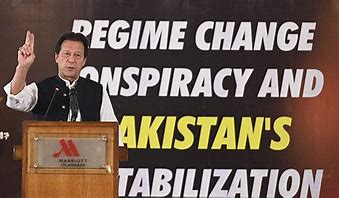
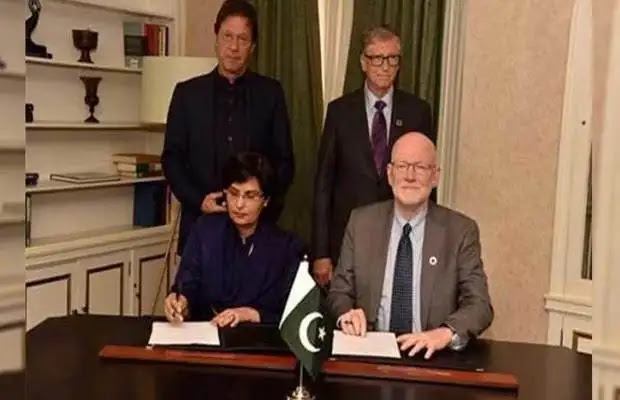
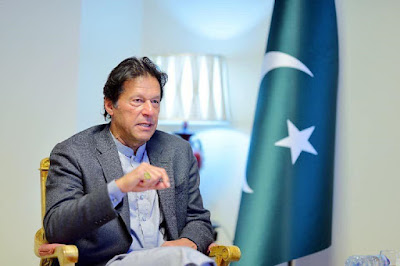

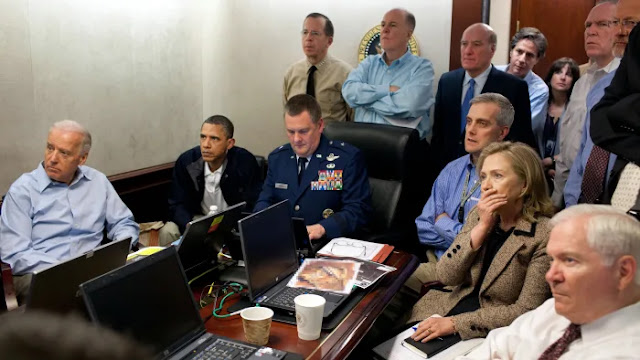

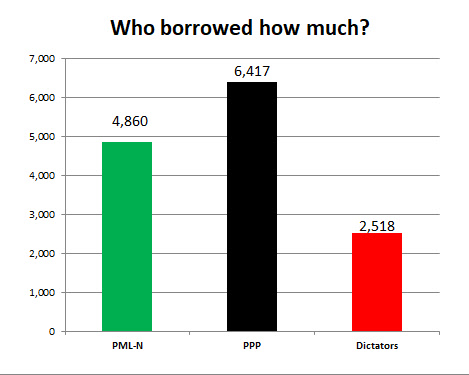
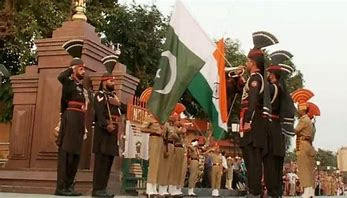
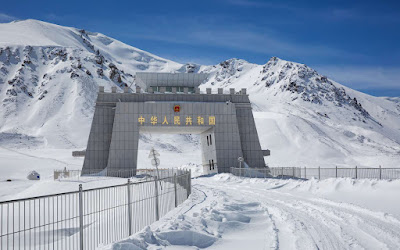

2 Comments